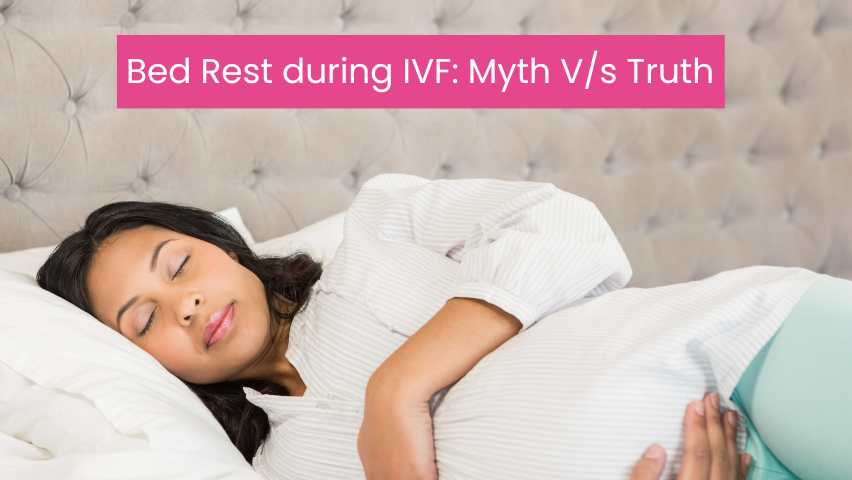- Home
- About Us
- Why BFI
- Treatments
Advanced IVF Treatment
Donor Services
Fertility Preservation
Advanced IVF Treatment
Donor Services
Fertility Preservation
- Locations
- Resources
- Contact Us

Reasons behind Low AMH Levels and ways to increase it
28 February 2024Reasons behind Low AMH Levels and ways to increase it
What is AMH and its Role in Fertility?
Anti-Mullerian Hormone (AMH) is a key player in the intricate dance of hormones that regulate fertility in women. Produced by the small, developing follicles in the ovaries, AMH serves as a reliable marker of a woman’s ovarian reserve and plays a crucial role in the fertility journey.
In females, it becomes a vital indicator of ovarian function, reflecting the quantity of eggs available for fertilization. As women age, their ovarian reserve naturally declines, and monitoring AMH levels helps assess fertility potential. Normal AMH levels may indicate a higher quantity of eggs and potentially better fertility, while low levels may suggest diminished ovarian reserve.
This information assists both healthcaare providers and individuals in making informed decisions about fertility treatments, such as in vitro fertilization (IVF), and helps predict response to ovarian stimulation protocols. Overall, AMH is a valuable tool in assessing and understanding a woman’s reproductive capacity. It’s important to remember that it’s not the only factor influencing fertility.
Main Reasons for Low AMH
- Age-Related Decline: As a woman ages, the ovarian reserve naturally diminishes. The number of eggs decreases, leading to lower AMH levels. This decline is a natural and expected aspect of the aging process, with fertility gradually decreasing after the age of 30 and more significantly after 35.
- Ovarian Reserve Dynamics: Genetic and environmental factors can influence the rate at which the ovarian reserve declines. Some women may experience a faster reduction in egg quantity due to genetic predispositions or exposure to environmental factors that impact ovarian health.
- Polycystic Ovary Syndrome (PCOS): Women with PCOS, a common hormonal disorder, often exhibit hormonal imbalances. Elevated levels of androgens and insulin resistance associated with PCOS can affect the ovarian follicles. PCOS patients often have high AMH levels. This means there is a higher number of small follicles. However the maturation process is disturbed and these small follicles fail to grow leading to problems in ovulation.
- Premature Ovarian Insufficiency (POI): Premature ovarian insufficiency occurs when the ovaries cease normal function before the age of 40. This condition results in a more rapid decline of the ovarian reserve, reflected in diminished AMH levels.
- Endometriosis Impact: Endometriosis, a condition where tissue similar to the uterine lining grows outside the uterus. This may impact ovarian function and reduce AMH levels. The inflammatory nature of endometriosis can affect the health of ovarian follicles.
- Cancer Treatments: Chemotherapy and radiation therapy, while crucial for treating cancer, can have deleterious effects on ovarian function. These treatments may lead to a decrease in the number of viable eggs and subsequently result in lower AMH levels.
- Underlying Medical Conditions: Certain autoimmune disorders and genetic conditions can influence ovarian function, contributing to lower AMH levels. These conditions may disrupt the normal processes involved in follicular development.
- Ovarian Surgery Effects: Surgical interventions on the ovaries, such as the removal of ovarian cysts, can impact ovarian reserve. While such surgeries may be necessary for various reasons, they may contribute to a reduction in AMH levels.
- Lifestyle Factors: Unhealthy lifestyle choices, such as smoking, excessive alcohol consumption, and obesity, can negatively affect ovarian function. These factors may contribute to a decline in AMH levels, influencing overall fertility.
Ways to increase AMH level
One may feel that it will be possible to improve or increase AMH level. However, in reality, our aim is to improve egg number and not just the value of AMH. While below mentioned, changes may help a little, it is most crucial to plan pregnancy early when the AMH levels are low or vert low. If you can’t plan a pregnancy after diagnosis of low AMH soon, you should consider fertility preservation by egg freezing or embryo freezing also.
- Healthy Diet: Ensure a well-balanced diet with a variety of fruits, vegetables, whole grains, lean proteins,vitamin D, omega-3 fatty acids and healthy fats. Consider incorporating foods rich in antioxidants, such as berries, spinach, and nuts.
- Regular Exercise: Engage in regular physical activity, which can help regulate hormones and improve overall health. Aim for a combination of aerobic exercises and strength training.
- Maintain a Healthy Weight: Both obesity and being underweight can potentially affect hormonal balance, so maintaining a healthy weight is important.
- Adequate Sleep: Ensure you get enough quality sleep, as lack of sleep can impact hormone production and overall well-being.
- Manage Stress: Chronic stress can negatively impact reproductive hormones. Incorporate stress-reduction techniques such as meditation, yoga, or deep breathing exercises.
- Avoid Smoking and Excessive Alcohol: Smoking and excessive alcohol consumption may have a negative impact on fertility, so it’s advisable to avoid or limit these substances.
- Fertility Supplements: Some women may consider fertility supplements under the guidance of a healthcare professional. These might include folic acid, CoQ10, DHEA and certain antioxidants.
- Regular Check-ups: Regularly monitor and manage any underlying health conditions with the help of a healthcare provider.
Conclusion
In summary, AMH is a valuable tool in the realm of fertility, offering insights into ovarian reserve and aiding in the customization of fertility treatments. Understanding AMH levels empowers individuals and their healthcare providers to make informed decisions, paving the way for personalized and effective fertility journeys.
Ready to take the next step in your fertility journey? Contact today at Bavishi Fertility Institute to schedule a consultation. Let our experienced team guide you on the path to parenthood. Your future begins now.
